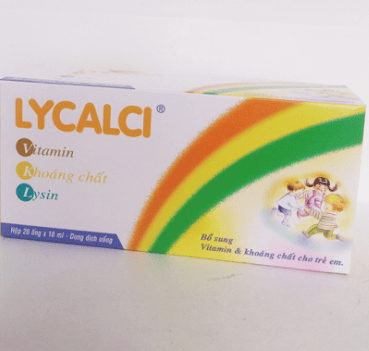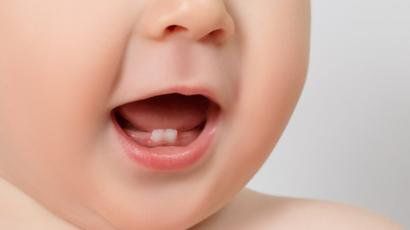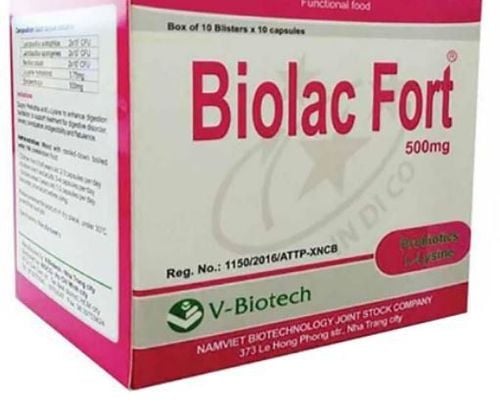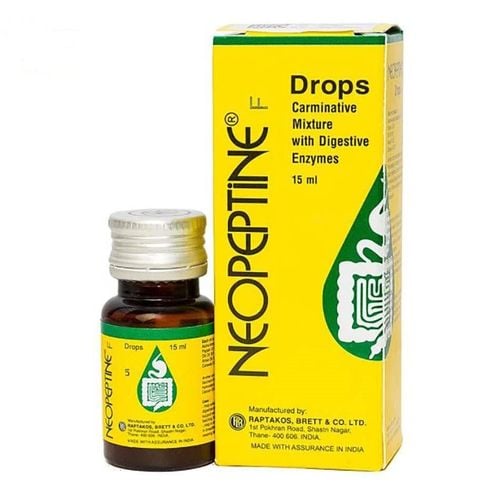This is an automatically translated article.
Why teething babies have anorexia is a question that many parents are concerned about. In fact, when children teething, it will cause swelling of the gums, pain, and decreased taste, so children often have anorexia and no appetite. So what to do when children are anorexic when teething?
1. What are the signs of teething?
Usually, babies get their baby teeth around 6-9 months old. In some children, there are obvious symptoms when teething, but in some children, there are no signs at all? Teething symptoms that parents can recognize are as follows:
Irritability and fussiness Drooling more than usual Chewing things Losing appetite Difficulty sleeping Gums are tender, sometimes swollen. Accordingly, if a child shows unusual signs such as: high fever, irritability, crying more and prolonged diarrhea, parents need to take the child to a pediatrician immediately to rule out other causes. cause disease.
The sequence of teething is also related to the time when the baby has anorexia, specifically as follows:
Stage 1: (6 - 9 months) lower incisors come in Stage 2: (9 - 15 months) upper front teeth come in. and the lateral incisors of the upper and lower jaws erupt. Stage 3: (15 - 19 months) eruption of the first molars of the lower jaw. Stage 4: (17 - 23 months) babies grow fangs that help them bite and tear food Stage 5: (23 - 33 months) grow their upper teeth and gradually complete their teeth. Teething occurs in five stages, often lasting more than two years, and can be a very difficult time for both babies and their parents. Knowing what to expect during these difficult times can help reduce discomfort and help children develop better physically.

Giải đáp tại sao trẻ mọc răng lại biếng ăn?
2. Why are teething babies anorexic?
Each child is a completely different individual and the child's body response to changes is also completely different. There are children and older anorexia with more drooling, swollen gums. The reason is that the pain in the mouth makes the child not want to eat. In addition, when a baby is teething, enzymes in the body will focus on the position of the growing tooth to support the process of baby teeth emerging from the gums. Because of this, the amount of enzymes that digest food in the body will decrease, making children feel no longer appetite leading to anorexia. In some other children, they have diarrhea when teething (also known as watering), which affects the digestive system more or less, the stomach is uncomfortable, the resistance is reduced, affecting the child's appetite. .
A child who is unable to eat normally will become irritable, as the child is experiencing hunger pangs and possibly because the child's blood sugar has dropped. This irritation can lead to fussiness, put pressure on the head, and can make gum damage worse. As the pain in the gums increases, the child may not want to eat because of the pain and the drooling cycle continues until the pain is under control and the child is able to eat.
Teething symptoms begin four days before teething and continue for three to five days after eruption, and resolve once the teeth have emerged from the gum surface. However, parents also need to pay attention to the problem of anorexia of children. For normal children with good resistance, only after teething, children will eat and drink again as before, but there are "overweight" children who are lazy to eat during this time and wait until the teeth come out to return. Eating normally again, for a long time will form a long-lasting anorexia habit.
Watch now: Teething and Vomiting: Is this normal?

Mẹ cần vệ sinh răng lợi cho trẻ thường xuyên khi trẻ mọc răng
3. Effective solutions for children with anorexia when teething
The teething period is a "difficult" time for the child, the child is very irritable, so the mother must be very calm. If the child is fussy and refuses to eat, it is best not to force the child to eat, inadvertently it will make the child feel that the meal is a "torture" and the child's anorexia will be worse.
What you need to do during this time is:
Clean your baby's teeth and gums regularly: you need to wash your hands thoroughly before doing this, then wrap your finger in a clean gauze pad, dip it in water and then Gently rub the baby's gums. The fact that the child chews on the mother's finger is also a way to ease the pain for the child. Better yet, you should not put your baby to sleep with a bottle or pacifier, this will only create conditions for bacteria to grow, not soothe the baby. Increase breast-feeding when the baby needs it. Using a cold stainless steel spoon and gently pressing on the swollen gums can also help disperse the baby's pain. However, mothers should note that only spoons should be kept in the refrigerator, not in the freezer because it will hurt the baby's gums. Teething is also the time when children need to increase calcium, so mothers should pay attention to choose calcium-rich foods such as shrimp, fish, eggs, cheese, oranges... Eat smaller meals instead of focusing on one meal, the food needs to be cooked softer, more liquid, but it is necessary to pay attention to all 4 groups of substances (protein - fat - fiber - starch) Note to supplement water for children enough to avoid dehydration. If the child has a low fever, wipe the child's body with warm water. Regularly wipe drool around the child's mouth to limit inflammation and swelling. Itchy gums and the urge to chew everything are familiar symptoms of teething babies. Therefore, the mother can cook boiled vegetables such as carrots, zucchini, and beans until soft. Then cut into cubes so that the children can meet them whenever they want. This food can also replace toys for children without affecting health. During the teething process, the mother should not puree everything for the baby to eat, but instead, the mother should regularly change dishes so that the baby's teeth are familiar with a variety of foods. Some types of hard foods that mothers need to supplement for children at this time: bread, rice, meat, vegetables...
Children who are anorexic when teething is a situation many parents encounter. Please apply the above methods to help your child soothe painful and uncomfortable muscles when swollen gums. Especially in this period, children are often anorexic, so the body may suffer from nutritional deficiencies, so with the right nutrition, the mother should add the necessary micronutrients: Zinc, selenium, chromium, vitamin B1. and B6, ginger, acerola fruit extract (vitamin C), ... to improve taste, eat well, achieve height and weight in accordance with and exceed standards, good immune system, enhance resistance to less sick and less likely to have digestive problems.
Also according to leading nutrition experts, parents need to be calm and persistent when supplementing with nutrients for children, even through eating or functional foods. In particular, the use of functional foods should choose those of natural origin that are easily absorbed, do not allow simultaneous use of many types or continuously change the types of functional foods. Besides, nutrition experts also emphasized on the role of biological zinc; Parents should learn and supplement zinc for children properly at the appropriate time, to avoid zinc deficiency affecting the comprehensive development of children.
In case, the child shows abnormal signs, the parents should take the child to the medical center for examination and treatment.
To have more knowledge about nutrition and child care for each age, parents should regularly visit the website vimec.com.













